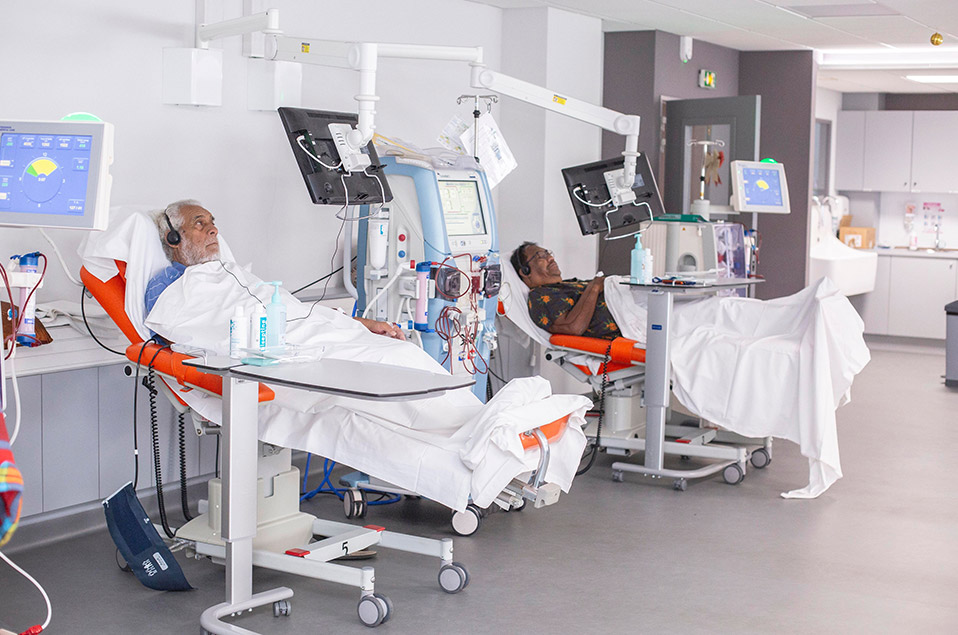
When our two kidneys no longer filter the blood properly, we suffer from kidney failure. This disease is called “acute” if the dysfunction is transient and reversible. If it is irreversible, without the possibility of cure, the disease is called “chronic”. In this case, however, it can be stabilized.
Chronic renal failure is induced by pathologies (diabetes, hypertension…) that gradually destroy kidney structures. It has five stages. At the terminal stage, the filtration capacity of the kidneys is less than 15% of their normal capacity: it is then necessary to replace the renal function. This is what dialysis and kidney transplantation do. These two modes of treatment, which extend life expectancy, have revolutionized the management of chronic kidney disease since the 1960s.
Dialysis
Dialysis replaces the purifying function of kidneys. It therefore filters the blood to rid it of its waste and excess water, according to several techniques:
- hemodialysis, which purifies the kidneys through an artificial membrane (dialyzer) via an extracorporeal circuit. Day hemodialysis sessions usually last four hours, on average three times a week. Long-term night dialysis (eight-hour sessions, three times a week) is more and more used;
- peritoneal dialysis, which filters the blood through a natural membrane, the peritoneum. The patient practices it every day, manually or with the help of a cycler, day or night, at home if he wishes.


Kidney transplantation
Kidney transplantation involves replacing deficient kidneys with a healthy kidney. It offers the patient several years of life without dialysis.

